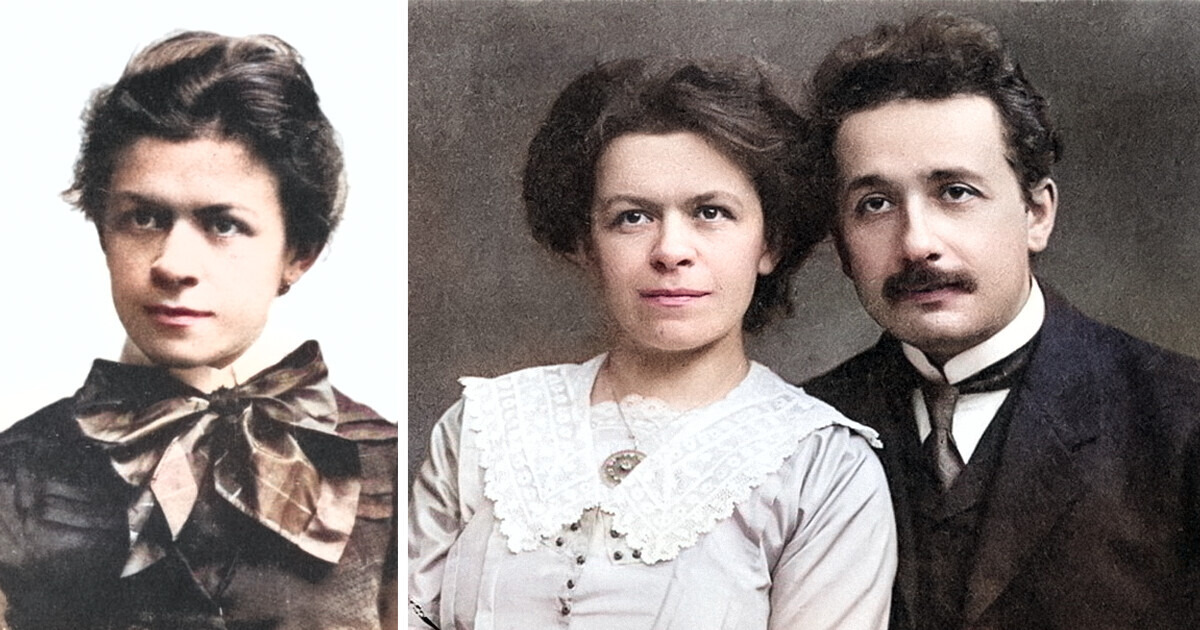A Girl Born Without Nose, Who Was Called “Voldemort”, Proved Everyone Is Beautiful in Their Own Way


In scientific history, certain names shine brightly, while others remain in the shadows. One such obscured figure is Mileva Marić, known to many merely as «Albert Einstein’s wife.» Yet, Mileva was more than just a spouse—she was a brilliant mathematician and thinker in her own right, whose influence on Einstein’s work is only now gaining recognition.
Mileva Marić was born into a prosperous Serbian family, displaying exceptional intelligence from a young age. Despite societal norms restricting women’s access to education, she pursued her passion for mathematics and physics with firm determination. Her academic achievements were remarkable, earning her admission to the Polytechnic Institute of Zürich in 1896, a rare opportunity for a woman in that era.
It was at the Polytechnic Institute that Mileva crossed paths with Albert Einstein, a fellow student whose name would become synonymous with genius in the decades to come. Despite the prevailing gender biases of the time, Mileva’s intellect captured Einstein’s attention, and they began a collaboration that would shape the course of scientific history.
The personal life of Mileva Marić was marked by triumphs and tragedies alike. She and Einstein married in 1903, but their relationship was far from conventional. The loss of their first child and the challenges of raising a family balanced their marriage, yet Mileva continued to support Einstein’s work while sacrificing her own ambitions.
Following their separation and eventual divorce, Mileva’s life took a quieter path. She devoted herself to raising their children and managing the legacy of her former husband, all while facing personal hardships, including her son’s illness. Despite these challenges, Mileva’s resilience and intellect remained unshaken, proof of her remarkable character.
While Einstein’s fame would later eclipse hers, Mileva played a significant role in their joint works. Together, they delved into complex mathematical and physical investigations, laying the foundation for groundbreaking discoveries. In 1905, their collaborative efforts culminated in a series of papers that revolutionized physics, including Einstein’s theory of relativity.
Marić’s brother was an eyewitness of Marić and Albert Einstein engaging in discussions about physics during their marriage. Their son, Hans Albert, also affirmed the continuation of their scientific partnership within their marriage, recalling moments when he saw them working together in the evenings at the same table.
However, Mileva’s contributions often went unrecognized. Despite her integral role in their research, Einstein’s name alone was written in the publications—a reflection of the gender dynamics of the era rather than the true extent of their partnership. As Einstein’s star ascended, Mileva remained in the background, her brilliance overshadowed by his fame.
In recent years, efforts to reclaim Mileva Marić’s rightful place in history have gained power. Scholars have begun to recognize her role in shaping Einstein’s ideas, challenging the simplistic narrative of a lone genius. While Einstein’s name may still dominate the chronicles of physics, Mileva’s legacy endures as a symbol of overlooked brilliance and untold potential. Her story serves as a reminder of the countless individuals whose contributions to science and society have been marginalized or forgotten.
As we celebrate the achievements of iconic figures like Einstein, let us also remember those who remain in obscurity, their brilliance hidden beneath the shadow of greatness. Mileva Marić may have been known as «Albert Einstein’s wife,» but her true legacy lies in her own formidable intellect and enduring impact on the world of science.











